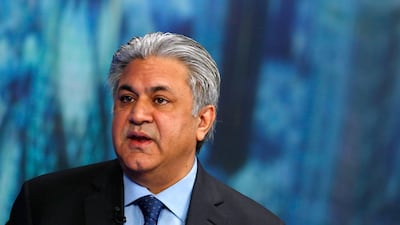Dubai’s financial services regulator is focusing on the role of senior management as part of its investigation of the collapsed private equity company Abraaj.
"This investigation is highly complex, on a wide scale and is being pursued vigorously," the Dubai Financial Services Authority (DFSA) said in its annual report issued on Tuesday.
“We are focusing our attention on senior management responsible for the conduct of the affairs of the relevant companies and funds, and persons who may have failed in their responsibilities to identify or report irregularities,” the regulator said. “We will use all of our powers to deal with those who are found to be culpable.”
Abraaj, which claimed to have managed almost $14 billion (Dh51.42bn) in funds, was forced into liquidation in June last year, after a group of investors including the Bill & Melinda Gates Foundation, the World Bank's International Finance Corporation and the Overseas Private Investment Corporation – a US government agency – commissioned an audit to investigate the alleged mismanagement of a $1bn healthcare fund.
In a 78-page indictment, US prosecutors charged Arif Naqvi, the founder of Abraaj, and five other senior executives of the company with systematic misappropriation of investor money.
Mr Naqvi, according to the charge sheet, along with Waqar Siddique, Sivendran Vettivetpillai and Mustafa Abdel-Wadood – all managing partners – Ashish Dave, the company’s chief financial officer and Rafique Lakhani, a managing director, “deceived and defrauded existing and potential investors in the US and elsewhere, including US financial institutions, US retirement and pension funds, US investment advisers, a US philanthropic foundation and an agency of the US government”.
Mr Naqvi is out on $20 million bail in the UK, awaiting extradition to the US, along with Mr Vettivetpillai, who is also out on bail in Britain. Mr Abdel-Wadood, who was arrested in New York, is out on $10m bail.
Last month in a US court hearing, Mr Abdul-Wadood pleaded guilty to conspiracy charges and agreed to co-operate with the US inquiry into a fundraising scheme that led to the world's biggest private-equity insolvency last year.
“We remain proactive in our regulatory risk-based approach and are vigilant in our ongoing efforts to uphold a high standard of financial discipline throughout the centre,” the DFSA said. “We are continually working to establish clarity in all our regulations, and place significant importance on strict but fair enforcement of these rules.”
In June, Sheikh Mohammed bin Rashid, Vice President of the UAE and Ruler of Dubai, enacted a new insolvency law (No 1 of 2019) for companies operating in the Dubai International Financial Centre. It “introduces a new debtor in possession bankruptcy regime, which will also place the DIFC at the forefront of complicated debt restructurings”.
The law provides for an administration process where there is evidence of mismanagement or misconduct. It also strengthens the rules governing insolvency procedures, and incorporates the UNCITRAL Model Law on cross-border insolvency proceedings with certain modifications to its application in DIFC.
In April, the DFSA, which regulates more than 500 companies registered at DIFC, said it was in contact with the US Securities and Exchange Commission and had been investigating Abraaj Capital, the only Dubai-registered entity of the collapsed company.


